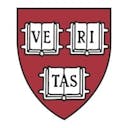My background
I attend my village's high school in Armenia. It's a really small school. I have only 10 classmates. It's not an IB program, but a standard Armenian educational system. I take 15 subjects, and I have to sit exams on three to graduate this year; my exams are in June. Overall, it can be pretty challenging, but when you dive into the Armenian education system, making strong relationships with teachers is one of the factors that can help you succeed in this system, because if you work really hard, they will understand the importance of learning opportunities outside of school, like cultural exchange programs and volunteering. This has helped me be more effective in achieving a balance between my studies and extracurriculars, which were important parts of my application. I really believe that there are many learning opportunities outside of school that give you an equal amount of world view and a chance to engage with different cultures, which can make you learn a lot.

Stats & Test scores
In the Armenian education system, unlike IB, you do not receive predicted grades, but I submitted my GPA and midterm grades. I had a 9 out of 10. The education system is theoretically till grade 10, but most schools in Armenia don't give 10 as a grade; in my case, it is even a rule mandated by the school directory.
I applied test-optional and took the Duolingo English Test, scoring 155/160.
Extracurriculars
I participated in an exchange program in the United States (FLEX). Studying there was a really important part of my application because many other aspects of my application were derived from that experience. For instance, the fact that I was involved in sports, musicals, and journalism, etc., at that high school. I combined all those activities together and presented them as one cohesive part of my application. It was definitely a major component of my extracurriculars.
When I returned from the FLEX program to Armenia, I became the city representative of my hometown in the US embassy network in Armenia. I organized monthly cultural and informative meetings not only for my school but also in different regions throughout Armenia on a wide range of topics. I also implemented two grant projects from the US State Department. One was an opportunity fair called GoFurther for over 200 rural youth, where 10 organizations gathered to introduce their visions to young children. Additionally, I have an ongoing project called BlindMath, a collaboration with the ABAC academy in Armenia where we help visually impaired children learn mental arithmetic, a mental math calculating method. We then organize weekly sessions for them.
I'm also actively involved in the European Youth Parliament. I have been a delegate two times, and recently, I served as the chairperson for a committee on Development at a National Selection Conference.
Moreover, I obtained a musical diploma in an Armenian drum instrument. As mentioned, I participated in many sports like cross-country, swimming, track, and field.
Mental arithmetics
Mental arithmetic is not widely practiced in many countries, but when the academy we're collaborating with takes their children to international Olympics, numerous countries come together. However, the concept of mental arithmetic for visually impaired children is not popular at all. We actually have a prototype design of abacuses that we plan to make from scratch, as there are really no existing resources. I don't think academies outside of Armenia have programs that support visually impaired children in learning mental arithmetic. So I believe it's a unique and one-of-a-kind initiative in Armenia. And I'm really glad that ABAC Academy is collaborating with us on this.
Honors
I was the first-place winner in the regional Olympiads for Armenian language and Armenian history. I also earned medals in swimming competitions. Additionally, I wrote about the exchange program I was accepted into because it's highly competitive, with only a 2.1% acceptance rate.
FLEX program
Future Leaders Exchange Program (FLEX) operates in post-Soviet countries, around 25 countries in total. Students from those countries get selected and then spend one academic year in the United States. They live with American host families and attend the local high school there. It's a fully funded program, so there is no financial contribution required from parents. The students live with host parents and become a part of their families. The program helped me immensely in my personal growth, understanding what I want to pursue in the future, and motivated me to study abroad because it's an incredibly enriching experience on a whole other level. The people you meet, especially fellow international exchange students, introduce you to so many cultures and opportunities. You also gain insight into how people think in different cultures, which makes you eager to learn more. I think it was one of the main reasons that after returning, I chose to apply to attend college in the US too. I lived in Upstate New York, which borders Canada, and it was an extremely cold place with long winters lasting six months. However, it was also a small and conservative community with my school having around 500 students. I wanted to challenge myself academically in a different education system from Armenia's. But when I came back to Armenia after the program, I realized how advanced we actually are academically, which I had underestimated before. I'm grateful to have had this comparison of educational systems, and I recommend everyone try to catch amazing opportunities like FLEX.

Why Harvard?
I have wanted to study government for a very long time. I know that Harvard is one of the best, if not the best university in the world for this field, with professors coming from diverse backgrounds who are actively engaged in research or even serving as politicians. The idea of having the chance to learn directly from them and make connections sounds truly exciting. I believe networking is one of the most crucial aspects of the college experience. It's not only about learning, but through networking, you can go incredibly far. Besides that, I wanted a school that excelled in many other areas besides just political science. Although I am confident in my desire to study government, I also want to explore other subjects. So I aimed for a well-rounded school that is highly regarded across different disciplines. That's why I also plan to engage in some secondary fields as well, like Russian studies or anthropology, utilizing the extensive resources Harvard has to offer.
Is Harvard University your dream university too?
Get into Harvard University with Guidance
Financial aid
Harvard provided me with a full scholarship, which covers the majority of the total cost. I only have to pay around 4% of the expenses. However, this remaining portion will be covered through study-term employment on campus. I will have to work on campus for a couple of hours each week. My family's financial contribution will be zero. Additionally, my flights to the US are also covered.
Want to get a full scholarship to your dream university?
Maximize your chances with Guidance
Helpful resources
I'm part of the Competitive College Club in Armenia. It's an Education USA program designed for around 50 high school students in Armenia who want to apply to universities and programs abroad. It's an intensive advising program, and my advisor greatly assisted me in revising my essays, compiling my extracurricular list, and also provided emotional support. We had mentors who provided feedback on our essays, and we also had public speaking sessions. It's a well-rounded program that aids you in many different areas and also serves as a great networking opportunity. Additionally, I had friends who applied last year, and they assisted me in understanding the application process and what admission officers specifically look for.






